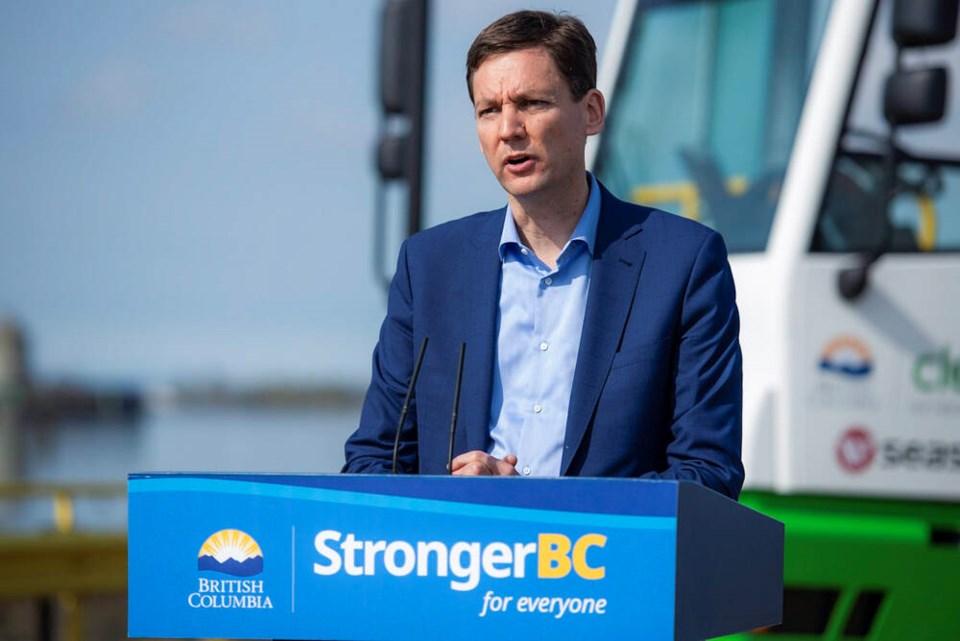B.C. Premier David Eby and Minister of Energy, Mines and Low Carbon Innovation Josie Osborne were in Delta on Thursday to make a big announcement about having more commercial vehicles carbon emission-free.
They were at Seaspan Ferries-Tilbury enthusiastically announcing that three CleanBC programs are receiving new funding for industry: the Commercial Vehicle Pilots (CVP) program, the Commercial Vehicle Innovation Challenge and support for medium-and heavy-duty vehicle charging infrastructure.
Seaspan Ferries Corporation has received support to acquire fast-charging stations and two large-battery electric vehicles to move heavy cargo. The Seaspan project is one of 20 projects that shared $17.3 million under the CleanBC Go Electric CVP program to support buying electric vehicles, including hydrogen-fuel-cell vehicles and charging ports.
The CVP program has a budget of $89 million over seven years, which includes $40 million from Budget 2023, they announced.
Eby said this province is leading the country when it comes to people switching to zero-emission vehicles.
Electric Vehicles (EVs) made up 18 per cent of all light-duty passenger vehicles sales in B.C. last year. The number of registered light-duty EV’s rose from 5,000 in 2016 to more than 100,000 today, while B.C. has one of the largest public charging networks in Canada with more than 4,200 stations, compared to just 800 stations in 2016.
“But we know it can be more difficult for the commercial vehicle sector, in particular, to make this switch. The availability of zero-emission vehicles for commercial transportation is more limited, development costs are high. These are serious challenges…The commercial vehicle sector accounts for 22 per cent of our total carbon emissions here in British Columbia, and with the emerging medium and heavy-duty zero emission vehicle industry, we do not want B.C, to be left behind. In fact, we want to be able to maintain our leadership position," said Eby.
Osborne noted they are making great progress but there is much work to do, especially when it comes to commercial vehicles.
Derek Ollmann, President, Seaspan Marine Transportation, said the marine supply chain needs to continue to decarbonize.
Under StrongerBC for the Commercial Vehicle Innovation Challenge, an additional $30 million will help address the technology gap in the hard-to-decarbonize commercial vehicle sector.
The Commercial Vehicle Innovation Challenge supports accelerating zero-emission vehicle technology from the idea stage to market, helping innovators and entrepreneurs through the design and build phases of new clean technologies for the commercial vehicle sector.
The province also says that that to support British Columbians’ transition to electric vehicles, $19.5 million is being invested in specialist medium- and heavy-duty vehicle charging stations under the CleanBC Public Charging Program, allowing for 130 new medium- and heavy-duty charging stations throughout the province.
The funding is in addition to $26 million previously announced for more light-duty charging stations throughout B.C.



